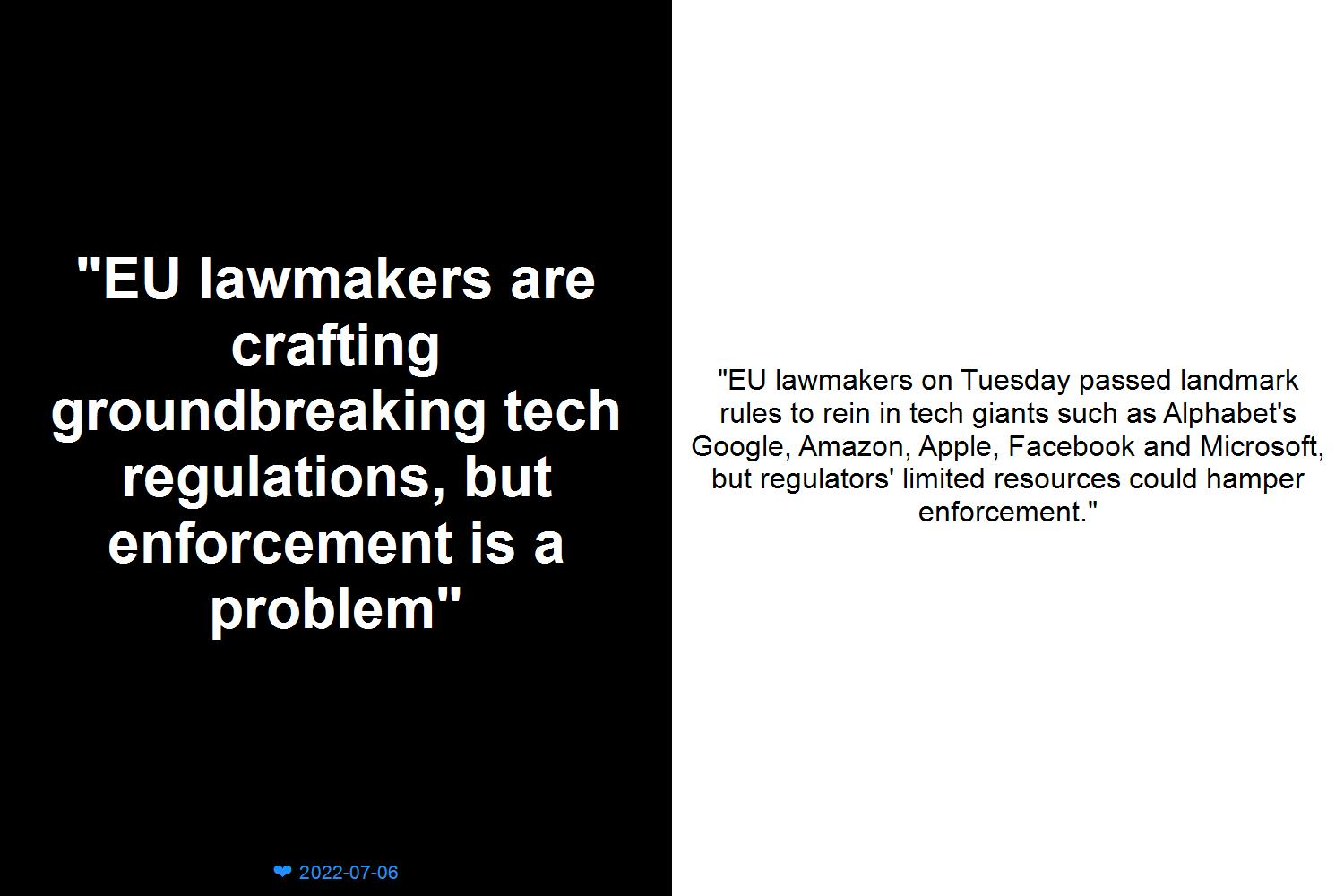EU lawmakers are crafting groundbreaking tech regulations, but enforcement is a problem
A combined photo in the Reuters document shows the logos of Amazon, Apple, Facebook and Google. Reuters/File photo.
BRUSSELS, July 5 (Reuters) - European Union lawmakers passed landmark rules on Tuesday banning companies including Alphabet (GOOGL.O) units Google, Amazon (AMZN.O), Apple (AAPL.O), tech giants including Facebook and Microsoft (MSFT.O), but limited resources from regulators could hinder law enforcement.
In addition to the rules known as the Digital Markets Act (DMA), lawmakers passed the Digital Services Act (DSA), which requires online platforms to monitor more closely for illegal content on the internet.
Businesses that violate the DMA face fines of up to 10% of global annual revenue, and up to 6% for DSA violations. Earlier this year, lawmakers and EU countries reached a political agreement on the two sets of rules, but some details remain to be worked out.
The European Commission has set up a working group that is expected to be joined by about 80 officials, which critics say is not enough. A 12 million euro ($12.3 million) call for proposals was launched last month, asking experts to help with investigations and enforcement over four years.
EU industry chief Thierry Breton, seeking to allay concerns about enforcement, said different teams would focus on different issues such as risk assessment, messenger service interoperability and data access during the implementation of the rules .
The regulator will also establish a European Algorithmic Transparency Centre to hire data scientists and algorithm scientists to provide law enforcement support.
“We have begun to align our internal organization with this new role, including by repositioning existing resources, and we expect to increase hiring over the next year and staff a dedicated DG CONNECT team of over 100 full-time employees in 2024,” Breton said in a blog post.
Lawmaker Andreas Schwab, who steered the issue through the European Parliament, called for a larger task force to counter the deep pockets and legions of lawyers at Big Tech.
The European Consumer Organization (BEUC) expressed the same concern.
\"Last week, we warned other civil society groups that unless the committee hires the experts it needs to oversee the practices of big tech companies in the market, legislation could be jeopardized by the fact that big tech companies are doing it,\" BEUC deputy director-general Ursula Pachl said in a statement. Paralyzed by weak enforcement.” ..
DMA will force companies to change the way they do business, forcing them to make their messaging services interoperable and give business users access to their data.
Business users can promote competing products and services on the platform and transact with customers outside the platform.
Businesses must not prioritize their own services over those of competitors or prevent users from removing preinstalled software or apps, two rules that would hit Google and Apple hard.
DSA prohibits targeted advertising of children or based on sensitive data such as religion, gender, race, and political opinions. Dark patterns, tactics that trick people into giving companies personal information online, will also be banned. (1 USD = 0.9754 EUR).
💌 Resources and References:
Reuters
EU lawmakers are creating groundbreaking technical regulations, but enforcement is an issue.




Comments
Post a Comment